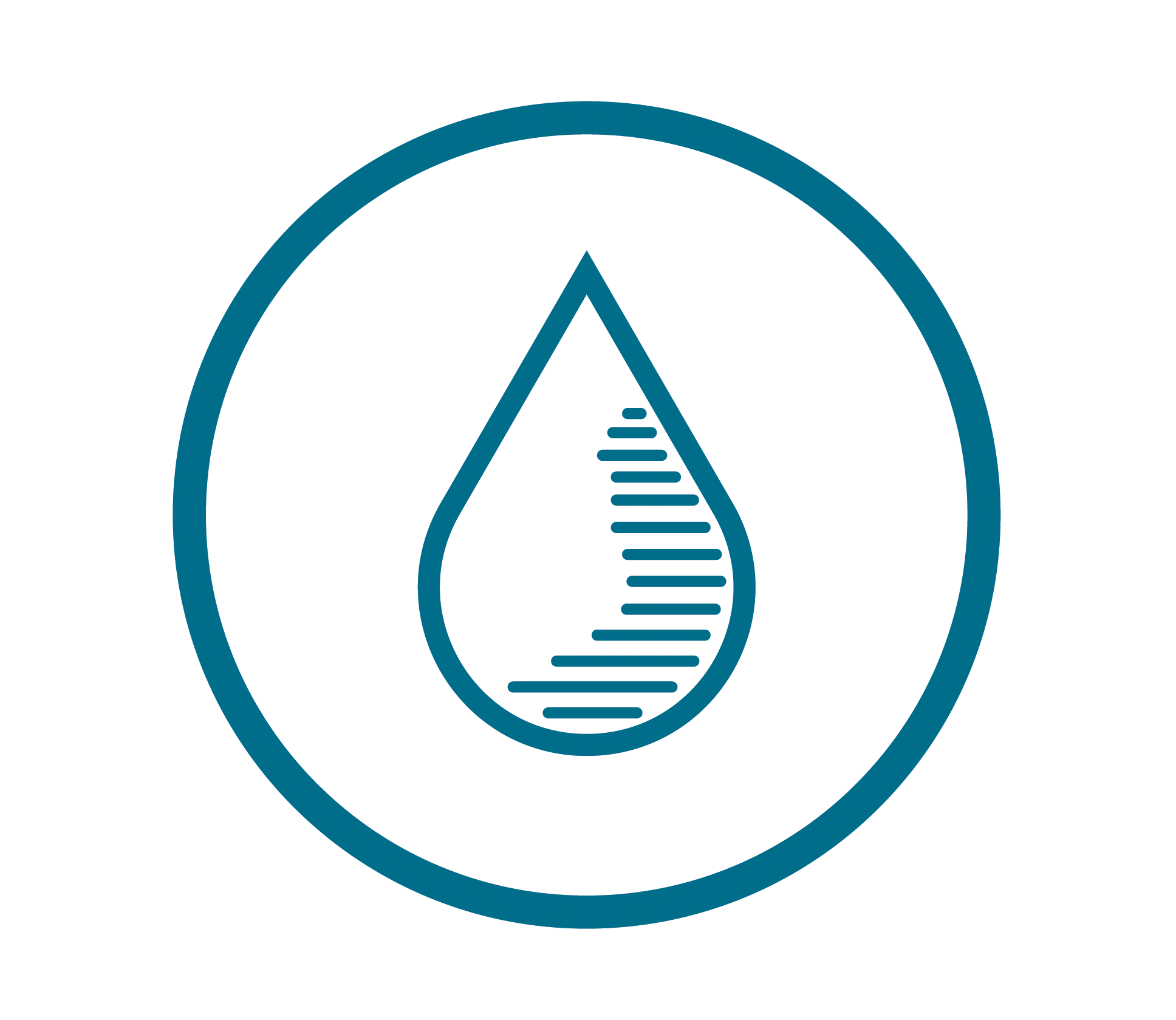2019 Iowa Legislative Session Recap
By Anna Gray on May 2, 2019 in Blog
Your voice matters.
Since the Iowa legislative session began in January, Iowa Natural Heritage Foundation has been busy tracking bills, meeting with legislators and working with our members to advocate for natural resource protection. The session adjourned on Saturday, April 27, after the House and Senate agreed to budget bills. Gov. Kim Reynolds now has 30 days to sign bills into law.
We want to thank each of you that spoke up for Iowa’s natural resources and outdoor recreation. When you talk to lawmakers, you are lending your voice to the voiceless — the land, water, wildlife and future generations that will be directly impacted by the decisions we are making now. With your help, we were able to stop some harmful bills and advocate for funding crucial programs. We are grateful for your advocacy. And we know you’ll be there when we need you again.
We would also like to thank the legislators who continue to champion conservation at the statehouse and recognize that protecting our natural resources makes Iowa a better place to live, work and play.
— Anna Gray, INHF Public Policy Director
The following provides a summary of key conservation legislation, budget items and issues that will require additional advocacy:
Water Quality
 State Revolving Fund: Senate File 548 — Created in the Clean Water Act, the State Revolving Fund (SRF) program provides federal funding to states to support low interest loans for water quality improvement projects. Introduced in the Senate, SF 548 (fka SSB 1221) seeks to limit the use of the loan program. The narrowly drafted legislation poses one fundamental question: Should a private entity be allowed to access a low interest loan from the State Revolving Loan Fund (SRF) to buy land for for the benefit of water quality? Iowa Natural Heritage Foundation believes the answer is YES, conservation partners should be allowed to use this program to complete water quality and flood mitigation projects that provide a public benefit.
State Revolving Fund: Senate File 548 — Created in the Clean Water Act, the State Revolving Fund (SRF) program provides federal funding to states to support low interest loans for water quality improvement projects. Introduced in the Senate, SF 548 (fka SSB 1221) seeks to limit the use of the loan program. The narrowly drafted legislation poses one fundamental question: Should a private entity be allowed to access a low interest loan from the State Revolving Loan Fund (SRF) to buy land for for the benefit of water quality? Iowa Natural Heritage Foundation believes the answer is YES, conservation partners should be allowed to use this program to complete water quality and flood mitigation projects that provide a public benefit.
INHF worked with senators to make the original bill better by saving the Iowa Charitable Conservation Contribution Tax Credit and allowing SRF projects started before July 1, 2019 to continue. SF 548 passed out of both chambers last week with an amendment introduced by the House of Representatives. The House amendment allows private entities, like INHF, to use the State Revolving Fund (SRF) to acquire only the portion of land on which an edge-of-field practice — a buffer, saturated buffer, bioreactor, or wetland — is located. INHF is appreciative of the effort made to improve SF 548, but due to the irregular shape and size of edge-of-field practices, we remain concerned that the bill is too restrictive to allow private entities to effectively utilize the SRF for water quality projects involving land acquisition.
As such, INHF remains opposed to SF 548, and believes that SRF loans should be available for all eligible water quality improvement projects approved by the Environmental Protection Commission. You can read more about the SRF and INHF’s position on SF 548 here.
Outdoor Recreation
 Public Land Acquisition: House File 542 — For decades, INHF and conservation organizations have been advocating for more public land, outdoor recreation opportunities and natural resource protection. So, when egregious legislation was introduced that threatened the state’s and counties’ ability to acquire any new land or expand existing public spaces, hundreds of concerned citizens flooded the Capitol to oppose HF 542. The bill also sought to repeal the Charitable Conservation Contribution Tax Credit, eliminate use of SRF for land acquisitions, and place additional restrictions on REAP funds.
Public Land Acquisition: House File 542 — For decades, INHF and conservation organizations have been advocating for more public land, outdoor recreation opportunities and natural resource protection. So, when egregious legislation was introduced that threatened the state’s and counties’ ability to acquire any new land or expand existing public spaces, hundreds of concerned citizens flooded the Capitol to oppose HF 542. The bill also sought to repeal the Charitable Conservation Contribution Tax Credit, eliminate use of SRF for land acquisitions, and place additional restrictions on REAP funds.
Thanks to the thousands of calls, emails, and letters opposing the legislation, the bill did not make it out of subcommittee and officially died in the first legislative funnel on March 8th.
Resource Enhancement and Protection (REAP) Funding: $12 Million — Created in 1989, REAP uses funds from Iowa’s gaming receipts to support the state’s natural and cultural resources. To date, REAP has supported approximately 15,000 projects. Despite its success, REAP has never been fully funded. This year, REAP was appropriated $12 million — the same amount as last year. INHF will continue to advocate for fully funding REAP at $20 million.
Sustainable Agriculture
 Iowa Charitable Conservation Contribution Tax Credit: Conservation easements provide a valuable opportunity for landowners to protect their land and implement sustainable agriculture practices to ensure long-term health of their property. Many landowners who donate an interest in their land for conservation purposes are eligible for the Iowa Charitable Conservation Contribution Tax Credit, which provides tax incentives for permanently protecting agricultural and natural lands. When two bills (SF 548, HF 542) threatened the existence of this tax incentive, Iowa farmers spoke up. They explained how the tax credit can help farmers reinvest in their operations and serve as an effective farm succession tool. Thanks to their advocacy, SF 548 was amended to restore the tax credit and HF 542 was defeated.
Iowa Charitable Conservation Contribution Tax Credit: Conservation easements provide a valuable opportunity for landowners to protect their land and implement sustainable agriculture practices to ensure long-term health of their property. Many landowners who donate an interest in their land for conservation purposes are eligible for the Iowa Charitable Conservation Contribution Tax Credit, which provides tax incentives for permanently protecting agricultural and natural lands. When two bills (SF 548, HF 542) threatened the existence of this tax incentive, Iowa farmers spoke up. They explained how the tax credit can help farmers reinvest in their operations and serve as an effective farm succession tool. Thanks to their advocacy, SF 548 was amended to restore the tax credit and HF 542 was defeated.
Forest Reserve Program: The Forest Reserve Program provides landowners with a property tax exemption for persevering woodlands, with approximately 793,000 acres currently enrolled in the program. The program has been in place since 1906. A bill introduced this session (SF 5) proposed repealing this property tax exemption for landowners. The bill did not make it past the legislative funnel, but it will still be alive for the 2020 session. This is the third year legislation has been introduced in attempt to reform the program. Proponents of the bill say that the program negatively impacts rural school districts that rely heavily on property tax revenue. INHF will continue to work closely with legislators to find a way to address these concerns while keeping the well-being of our natural resources at the forefront of any proposed reforms to the program.
Trails
 State Recreational Trails Funding: $1.5 Million — Iowa’s State Recreational Trails Program has leveraged funding from federal and private sources to construct more than 1,180 miles of new trails. Even so, demand for new recreational trails, trail maintenance costs and trail connectors has consistently outpaced funding. Since 2014, allocations consistently decreased with only $1 million allocated in 2018. This year, the legislature increased trail funding to $1.5 million. While much more funding will be needed to address the hundreds of millions of dollars in unmet trail needs, INHF is pleased to see trail funding moving in a positive direction.
State Recreational Trails Funding: $1.5 Million — Iowa’s State Recreational Trails Program has leveraged funding from federal and private sources to construct more than 1,180 miles of new trails. Even so, demand for new recreational trails, trail maintenance costs and trail connectors has consistently outpaced funding. Since 2014, allocations consistently decreased with only $1 million allocated in 2018. This year, the legislature increased trail funding to $1.5 million. While much more funding will be needed to address the hundreds of millions of dollars in unmet trail needs, INHF is pleased to see trail funding moving in a positive direction.
Permanent Funding
 Natural Resources & Outdoor Recreation Trust Fund: In 2010, Iowans voted to amend the state Constitution to create the Natural Resources & Outdoor Recreation Trust Fund. Designed to support water quality, outdoor recreation, sustainable agriculture and trails, the Trust Fund could provide nearly $200 million annually for conservation in Iowa. However, a sales tax increase of 3/8 of a cent is required to fund the trust. The close of the legislative session marks the 9th year that the trust has gone unfunded, despite growing support for an increase in sales tax. INHF will continue working to fund the Natural Resources & Outdoor Recreation Trust Fund and to and maintain the formula that was in place when Iowans voted to amend the constitution with 63% approval.
Natural Resources & Outdoor Recreation Trust Fund: In 2010, Iowans voted to amend the state Constitution to create the Natural Resources & Outdoor Recreation Trust Fund. Designed to support water quality, outdoor recreation, sustainable agriculture and trails, the Trust Fund could provide nearly $200 million annually for conservation in Iowa. However, a sales tax increase of 3/8 of a cent is required to fund the trust. The close of the legislative session marks the 9th year that the trust has gone unfunded, despite growing support for an increase in sales tax. INHF will continue working to fund the Natural Resources & Outdoor Recreation Trust Fund and to and maintain the formula that was in place when Iowans voted to amend the constitution with 63% approval.
Being nature’s advocate is an ongoing commitment. Even though the legislative session has ended, INHF will continue to engage elected officials in important conversations about the state’s role in public land acquisition, water quality improvement and natural resource protection. We hope that you will join the discussion by sharing your experiences in Iowa’s parks, lakes and trails with your legislators. Please take some time to tell them why these natural spaces are important to you and your community. As we work to protect and restore Iowa’s land, water and wildlife, your voice is invaluable. Learn more about INHF’s legislative priorities and how you can enhance your advocacy by reading our Nature’s Advocate guide.
Be a voice for the voiceless. Donate now to help INHF public policy advocacy.